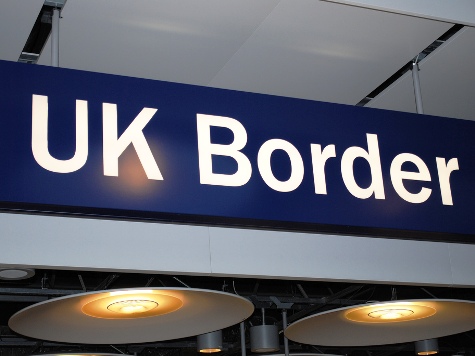
Murderers were granted British passports by the Home Office because the they did not supply the paperwork proving their convictions, according to a new report. John Vine, the Independent Chief Inspector of Borders and Immigration, found that failures to check the backgrounds of immigrants led to a number of violent criminals being allowed to become British nationals.
The Home Office was accused of taking people who had “very poor immigration histories”, including illegal immigrants and even a man who admitted to stabbing someone to death. The murderer was granted a passport because his caseworker was never told of the admission and did not take it into account as he had not proved it.
Whilst problems with the British immigration service have been known for sometime, these problems are considered more serious as these were applicants for citizenship. The children of full British citizens get the automatic right to citizenship themselves, and holders of British passports can also run for office. But Vine still claimed some of the decisions from the Home Office were “unacceptable”.
One applicant managed to pass despite having presented a fake document. Checks did not uncover the fake, and even when it did come to light, the Home Office decided not to revoke his his citizenship. The report described this as “a very poor decision”.
The report exposed that it was “extremely rare for an applicant to be interviewed” and “no checks of any sort” are carried out on referees from outside the UK. This contributed to a culture in which it was rare for anyone to be refused, and in 2013 just three percent of applicants were rejected.
Mr Vine was also concerned about the lack of prosecutions for using counterfeit documents. He said that aside from a few cases involving organised crime, prosecutions were very rare. This meant that applicants were free to submit any documents they wanted to.
He reserved his greatest criticism for the lack of “evidence of character” used when assessing applicants. This was because the few checks were ever made beyond the automated system. Until recently there was no office designated for conducting face to face interviews.
Vine said: “Applicants were granted British citizenship who had very poor immigration histories over protracted periods of time, including during the qualifying period for naturalisation,” noted Mr Vine.
“Immigration law breaches included having no leave to enter or remain for long periods, whereas immigration offences included working illegally and absconding,” ran the report.
While the number of applications for citizenship increased from 157,057 in 2007 to 235,256 in 2013, the number of refusals also fell sharply.
James Brokenshire, the Immigration and Security Minister: “The Chief Inspector’s report endorses our decision to grant or deny citizenship in the overwhelming majority of cases it examined.
“Where it identifies errors, most of the issues raised are the result of wrong-headed decisions taken by the previous Government before we scrapped the failing and dysfunctional UK Border Agency. In particular, their decision in 2007 to grant a large number of people the right to remain here indefinitely, even if they did not meet the rules.”

COMMENTS
Please let us know if you're having issues with commenting.